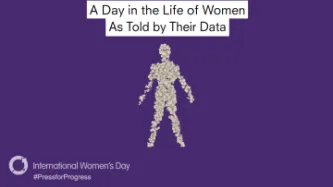Search
Content type: Report
Privacy International’s submissions for the Independent Chief Inspector of Borders and Immigration inspection of the Home Office Satellite Tracking Service Programme
The Home Office have introduced 24/7 electronic monitoring and collection of the location data of migrants via GPS ankle tags. This seismic change cannot be overstated. The use of GPS tags and intention to use location data, kept for six years after the tag is removed, in immigration decision-making goes far beyond the mere…
Content type: Long Read
To mark International Women’s Day 2018, Privacy International and some of our partner organisations - Datos Protegidos, Derechos Digitales, the National Coalition for Human Rights Defenders-Kenya, the Karisma Foundation, and the Foundation for Media Alternatives – are telling the stories of women across the world as told by their data over the next seven days (for us, it’s International Women’s Week!).
Gender inequality has many complex dimensions and data exploitation is yet another.…
Content type: News & Analysis
Written by Privacy International
07:06: Camille’s smart pillow sends a signal to her smartphone that it’s time for her to wake up. She checks the quality of sleep on the app – last night was not great. Because the pillow tracks the motion in her bed, the company knows what else she may (or may not) have been up to. But the company doesn’t just track her when she is in bed. By downloading the app, Camille has also authorised access to her location wherever she goes, her camera, her contact…
Content type: Long Read
The battle for Kenyan voters’ allegiance in the 2017 Presidential election was fought on social media and the blogosphere. Paid advertisements for two mysterious, anonymous sites in particular started to dominate Google searches for dozens of election-related terms in the months leading up to the vote. All linked back to either “The Real Raila”, a virulent attack campaign against presidential hopeful Raila Odinga, or Uhuru for Us, a site showcasing President Uhuru Kenyatta’s accomplishments. As…
Content type: Press release
A new investigation published today by Privacy International reveals the role of an American data-based digital advertising company in the highly divisive online re-election campaign of Kenyan president Uhuru Kenyatta.
In the run-up to Kenya's presidential election in August 2017, paid advertisements for two mysterious sites dominated Google searches for election-related terms and flooded Kenyans' social media feeds. All linked back to either 'The Real Raila', a virulent attack campaign…



